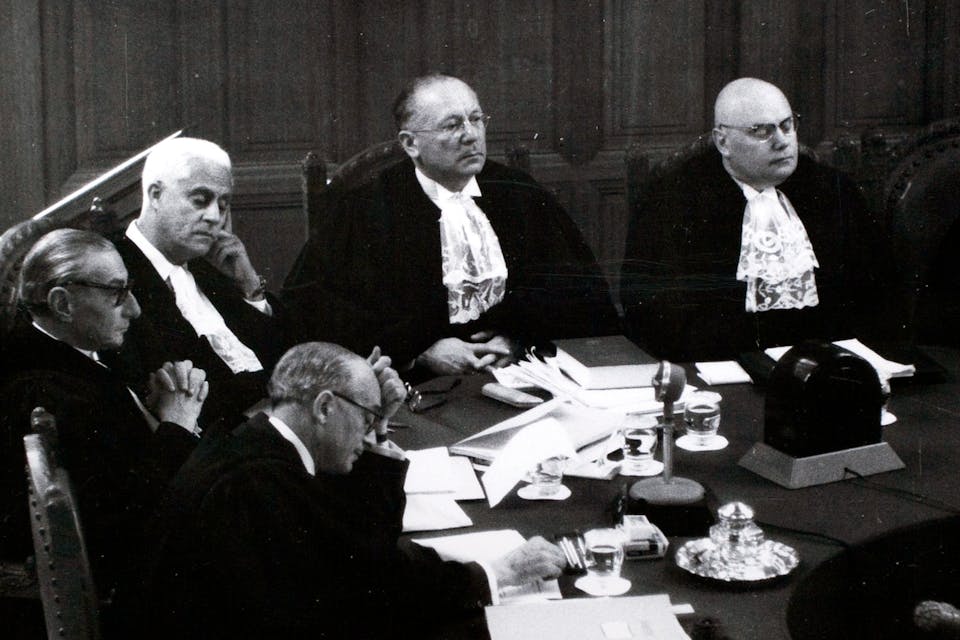
May 2, 2018
Some Key Founders of the International Human Rights Movement Were Also Zionists
Like Zionism, the global human rights movement was the product of Jews motivated by the need to find a refuge for their beleaguered people.
In his 2009 speech in Cairo, President Obama famously tied the “aspiration for a Jewish homeland” to “an unprecedented Holocaust” in Europe—thereby forgetting two millennia of Jewish longing for the restoration of Zion and more than a century of Zionist political activity.
Actually, those many decades of Zionist activity may themselves reflect too narrow a view of modern Jewish political history. So, at any rate, argues the historian James Loeffler in his new book Rooted Cosmopolitans: Jews and Human Rights in the Twentieth Century. Zionism, Loeffler reminds us, was but one proposed answer to the “Jewish Question.” Among the other imagined solutions for safeguarding Jewish communities in the early decades of the 20th century were international Communism, Bundism, territorial or political autonomy in places other than the land of Israel, and—to get closer to Loeffler’s own subject here—the movement for human rights and, especially, minority group rights. Proponents of this last cause believed that Jews could survive and indeed thrive as a national or religious minority in Europe if only their fundamental rights were respected.
The struggle between Zionist and non- or anti-Zionist forces in the pre-state era is a familiar tale. But Loeffler tells a different tale: as it turns out, some of the key founders of the international human rights movement, and some key theorists of the role of human rights in international law, were also Zionists. Their search for ways to protect their coreligionists led them to consider nationalism, domestic human rights law, international law—and Zionism. In other words, they did not see Zionism as an either-or proposition: